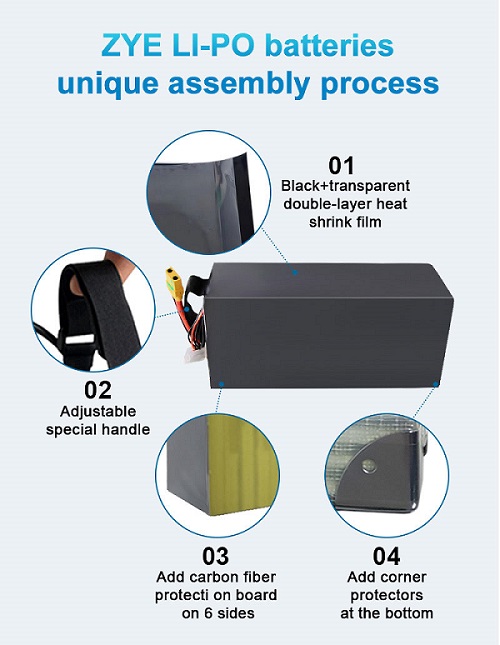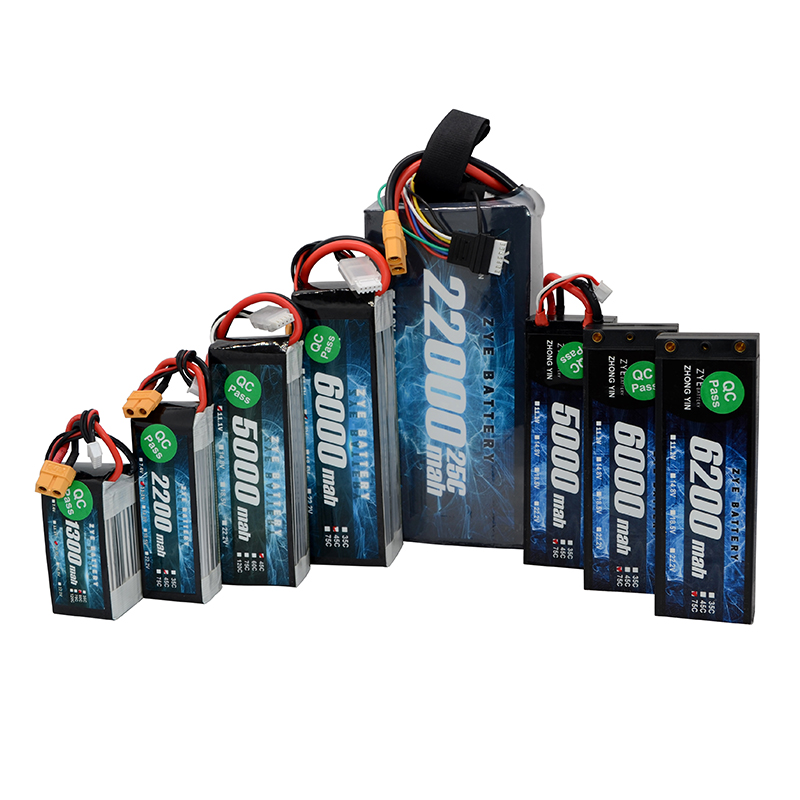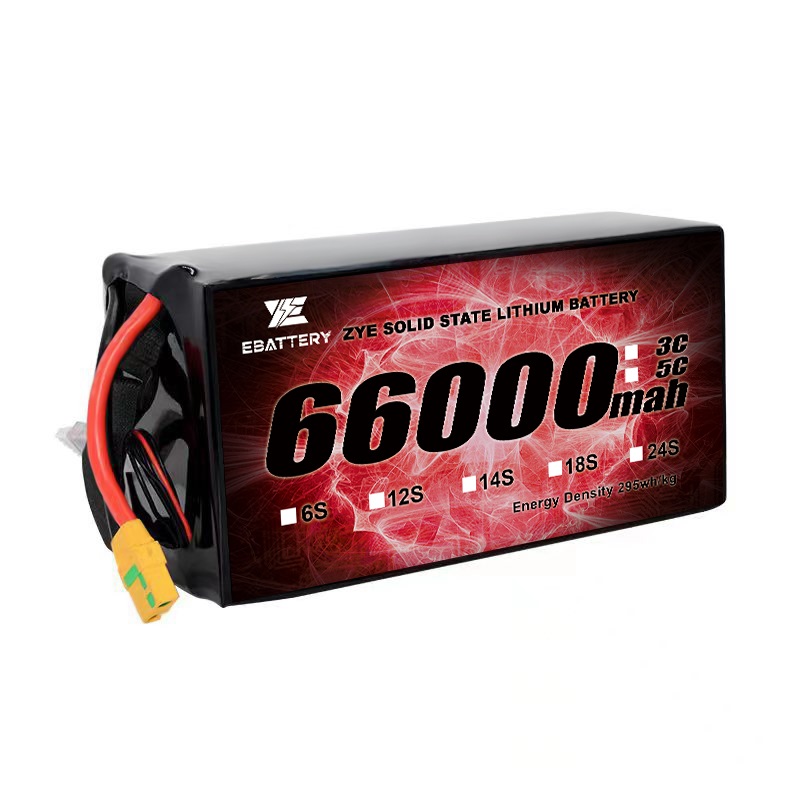How long do lipo batteries hold charge?
2025-03-20
LiPo (Lithium Polymer) batteries are renowned for their high energy density and lightweight properties, making them a popular choice for various applications, from remote-controlled devices to electric vehicles. One crucial aspect of these batteries is their ability to hold a charge over time. In this article, we'll explore the factors that influence charge retention in LiPo batteries, like 14s lipo battery 28000mah, and provide insights on how to maximize their performance.
What Factors Affect the Charge Retention of LiPo Batteries?
Several factors can impact how long a LiPo battery holds its charge:
1. Battery Quality: The quality of the LiPo battery plays a critical role in its ability to retain a charge. Higher-quality batteries, generally from well-known and reputable brands, tend to have better internal components and more efficient chemical reactions, leading to improved charge retention. Opting for high-quality 14s LiPo batteries ensures that you get better performance, longer life cycles, and overall reliability, which means your battery will hold its charge longer than a cheaper, lower-quality alternative.
2. Usage Patterns: How often and how intensely a battery is used can also impact its ability to hold a charge. LiPo batteries undergo charge and discharge cycles every time they are used, and each cycle contributes to wear and tear on the internal structure. Frequent usage, especially with deep discharges, can cause the battery to degrade faster, while batteries that are used sparingly tend to last longer and maintain their charge better over time. Managing how often you drain the battery to low levels can help prolong its overall life.
3. Storage Conditions: Where and how a 14s lipo battery 28000mah is stored is just as important as how it is used. Batteries that are stored in environments with extreme temperatures, high humidity, or fluctuating conditions tend to experience faster self-discharge and may degrade more quickly. Storing LiPo batteries in a cool, dry, and stable environment helps slow down the self-discharge rate and ensures the battery retains its charge for longer periods. Avoiding direct sunlight or hot areas is essential for preserving battery health.
4. Age: As with most electronics, LiPo batteries naturally lose capacity over time. As they age, their internal components undergo chemical changes that reduce their ability to hold a charge. This process is inevitable, but with proper care, you can slow it down and ensure your battery continues to perform at an optimal level. Regularly monitoring the battery's condition and managing how it's used can extend its lifespan.
5. Charge Level: The state of charge at which a LiPo battery is stored can also impact its ability to retain charge. Storing a battery at either full charge or a completely discharged state can accelerate capacity loss and reduce its overall lifespan. Ideally, LiPo batteries should be stored at around 40-60% charge if they are going to be stored for a prolonged period. This helps preserve their health and ensures they are ready for use when needed, without compromising their long-term performance.
How Can You Extend the Time LiPo Batteries Hold Their Charge?
To maximize the charge retention of your LiPo batteries, consider implementing the following practices:
1. Proper Storage: When not in use, store LiPo batteries in a cool, dry place away from direct sunlight and heat sources. Ideal storage temperatures range between 15°C to 25°C (59°F to 77°F).
2. Optimal Charge Level: For long-term storage, maintain LiPo batteries at approximately 50% charge. This level helps preserve the battery's health and prolongs its lifespan.
3. Regular Maintenance: Periodically check and balance the cells of your LiPo batteries, especially for multi-cell packs like 14s lipo battery 28000mah configurations. This ensures even charge distribution and prevents individual cell degradation.
4. Avoid Deep Discharges: Try not to completely drain your LiPo batteries. Deep discharges can cause irreversible damage and reduce the battery's overall capacity.
5. Use Appropriate Chargers: Always use chargers specifically designed for LiPo batteries. These chargers have built-in safety features and charging profiles that help maintain battery health.
6. Cycle Regularly: If storing batteries for extended periods, perform a charge-discharge cycle every few months to keep the internal chemistry active and maintain capacity.
7. Handle with Care: Avoid physical damage to LiPo batteries, as dents or punctures can compromise their integrity and lead to reduced charge retention or even safety hazards.

How Does the Storage Temperature Impact LiPo Battery Charge Retention?
Temperature plays a crucial role in the charge retention capabilities of LiPo batteries:
1. Cold Temperatures: Storing LiPo batteries in cold environments can temporarily reduce their performance and capacity. While this effect is generally reversible once the battery warms up, extreme cold can cause permanent damage.
2. High Temperatures: Elevated temperatures accelerate the chemical reactions within the battery, leading to faster self-discharge rates and potential long-term capacity loss. Avoid storing LiPo batteries in hot environments or exposing them to direct sunlight.
3. Temperature Fluctuations: Rapid temperature changes can cause stress on the battery's internal components, potentially leading to reduced charge retention over time. Stable storage conditions are ideal for maintaining battery health.
4. Ideal Storage Temperature: The optimal temperature range for storing LiPo batteries is between 15°C to 25°C (59°F to 77°F). This range helps minimize self-discharge rates and preserves the battery's overall capacity.
5. Temperature During Use: When using LiPo batteries, especially high-capacity options like 14s lipo battery 28000mah configurations, be mindful of operating temperatures. Extreme heat or cold during use can impact performance and potentially harm the battery.
Understanding these temperature-related factors can help you make informed decisions about how and where to store your LiPo batteries, ultimately extending their charge retention capabilities and overall lifespan.
By implementing proper storage practices, maintaining optimal charge levels, and being mindful of temperature conditions, you can significantly improve the charge retention of your LiPo batteries. Whether you're using a small battery for a hobby project or a large 14s lipo battery 28000mah for more demanding applications, these principles apply across the board. Remember, the key to maximizing LiPo battery performance lies in consistent care and attention to detail. By following these guidelines, you can ensure that your batteries maintain their charge for longer periods, providing reliable power when you need it most.
To experience the benefits of high-quality LiPo batteries with excellent charge retention capabilities, consider exploring our range of products. Our team at ZYE is dedicated to providing top-notch battery solutions tailored to your specific needs. For more information or to discuss your battery requirements, please don't hesitate to reach out to us at cathy@zyepower.com. We're here to help you power your projects with confidence and reliability.
References
1. Smith, J. (2022). LiPo Battery Technology: Advancements and Challenges. Journal of Energy Storage, 45(2), 123-135.
2. Johnson, A. et al. (2021). Factors Affecting Lithium Polymer Battery Longevity. International Conference on Battery Technologies, 78-92.
3. Brown, R. (2023). Temperature Effects on LiPo Battery Performance: A Comprehensive Study. Energy and Power Engineering, 15(3), 301-315.
4. Lee, S. & Park, H. (2022). Optimizing LiPo Battery Storage for Extended Lifespan. IEEE Transactions on Energy Conversion, 37(4), 1854-1863.
5. Zhang, Y. (2023). Charge Retention in High-Capacity LiPo Batteries: A Case Study of 14s 28000mAh Configurations. Journal of Power Sources, 530, 231342.
























































